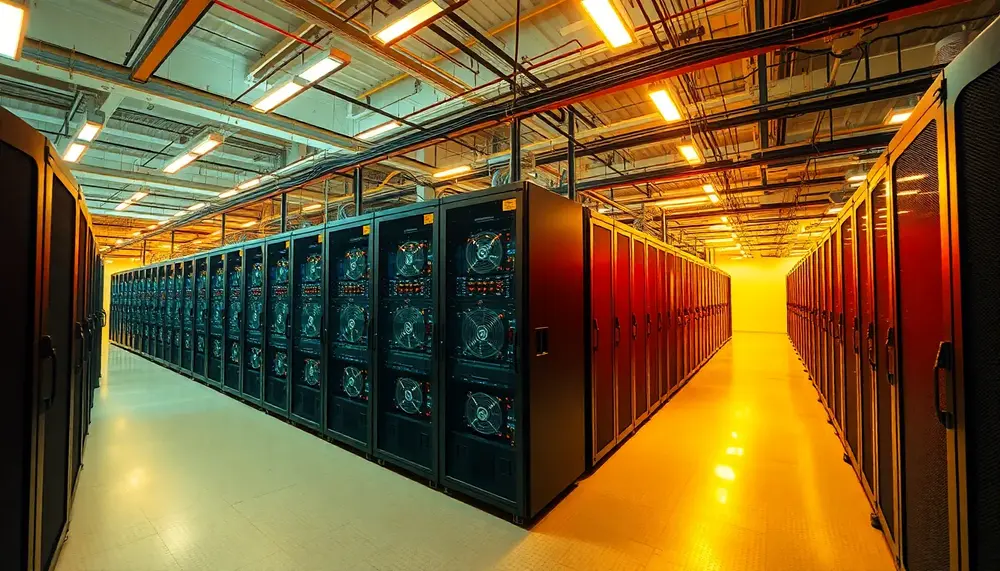Terahash
Terahash
What is a Terahash?
A Terahash (TH) is a unit of measure for hash rates, which are the speed at which a particular operation can be performed. The word "tera" means trillion, which indicates that a Terahash is a trillion hash operations per second. In Bitcoin mining, this term is used to measure the processing speed of mining hardware. Simply put, the higher the number of Terahashes per second, the faster the device is.
Terahash in Context of Bitcoin Mining
In Bitcoin mining, the computation of hashes solves complex mathematical problems to verify Bitcoin transactions and add them to the blockchain. This process requires substantial computational power. The speed at which these computations can be completed is measured in hashes per second.
When a miner's hardware has a high terahash rate, it can solve these calculations more quickly, increasing its chance of earning new bitcoins. For instance, a machine with a hash rate of 1 Terahash per second (1 TH/s) can make a trillion calculations per second.
Why is Terahash Significant?
The significance of the terahash measure lies in its relation to the efficiency of your mining hardware. A higher terahash rate can be seen as a higher mining speed. However, the key to profitable mining lies not just in speed, but also in the energy efficiency of your hardware. Consuming less power while outputting a high terahash rate is the ideal scenario for miners.
Furthermore, the total Terahash rate of all miners combined gives us the Bitcoin network's hash rate. This rate directly influences Bitcoin's network security and its resistance to attacks, making Terahash instrumental in maintaining Bitcoin's integrity.
Blog Posts with the term: Terahash

Understanding your objectives for Bitcoin mining is crucial, as it influences decisions on hardware, location, and risk management; key cost factors include electricity rates, cooling needs, maintenance expenses, and network difficulty. Efficient hardware can reduce energy costs significantly but often...

Bitcoin mining in Pakistan is gaining traction due to increasing awareness and potential profits, despite challenges like high electricity costs and equipment acquisition. The market for mining machines varies widely in price based on specifications and demand, with graphics cards...

The article provides an in-depth analysis of the profitability of Ethereum mining, covering essential factors such as costs (electricity, hardware investment, maintenance), and revenue generation. By understanding these components—power consumption rates, local electricity prices, necessary hardware like GPUs or ASICs,...

The Hashrate Index Luxor is a comprehensive tool for Bitcoin miners, offering real-time data and analytics to enhance mining efficiency by understanding hashrate trends, maximizing profits with the Bitcoin Hashprice Index, tracking ASIC prices for optimal hardware investments, and selecting...

Bitcoin mining profitability involves navigating a complex landscape of fluctuating costs, revenues, and market trends using tools like profitability charts and calculators to make informed decisions; staying adaptable is crucial as factors such as electricity rates, hardware efficiency, Bitcoin's price,...

The article discusses the increasing popularity of mining cryptocurrencies, specifically focusing on Kaspa and how to optimize an RTX 3080 GPU for this purpose. It covers key aspects such as understanding hashrate, the advantages of using an RTX 3080 for...

Bitcoin block rewards incentivize miners by providing a calculated amount of Bitcoin for successfully mining blocks, initially set at 50 BTC and halved every 210,000 blocks to maintain scarcity. To maximize profits in this digital gold rush, miners must consider...

Understanding Pepe mining pool stats is essential for optimizing your PEPEW mining activities, as it provides insights into hashrate, blocks distribution, difficulty vs price analysis, and potential earnings. By analyzing these metrics and using tools like the PEPEW Mining Calculator,...

Crypto mining factories are large-scale facilities dedicated to mining cryptocurrencies like Bitcoin, using specialized hardware and software for maximum efficiency. These operations rely on strategic locations with low electricity costs, favorable climate conditions, and robust security measures to ensure profitability...

The article explains the importance of understanding Peercoin hashrate for mining, detailing its significance in terms of security and profitability. It covers factors affecting hashrate such as hardware, network difficulty, electricity costs, software efficiency, stability, and market conditions while also...

Alephium is a scalable and secure blockchain that uses the Blake3 algorithm, optimized for ASIC miners like Bitmain's Antminer AL3, which offers high hash rates, energy efficiency, and user-friendly features. The guide covers Alephium mining benefits such as increased profitability...

The article provides a comprehensive guide to building and managing a successful crypto mining network, covering essential steps from understanding the basics of mining hardware and software to optimizing network setup, securing your operations against cyber threats, and effectively monitoring...

Hashrate is a crucial metric in cryptocurrency mining, representing the speed at which miners solve cryptographic puzzles to earn rewards; it's measured in units like kilohash and terahash, impacting both operational efficiency and economic outcomes. Understanding hashrate involves balancing its...

Alephium is a blockchain platform designed to enhance scalability and security through its unique BlockFlow consensus mechanism, combining Proof of Work (PoW) and sharding. Understanding and optimizing hashrate—measured in hashes per second—is crucial for effective Alephium mining as it directly...

